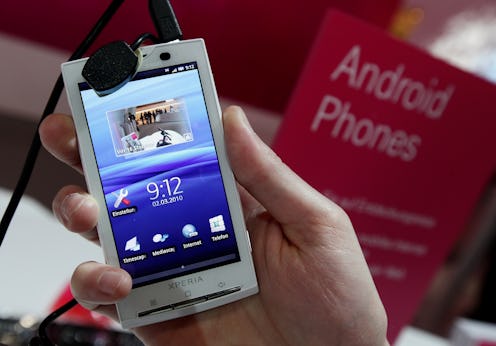News
Your Phone's Gonna Get A "Kill Switch"
Things just keep getting worse and worse for smartphone thieves, and who's going to complain about that? Microsoft and Google announced they'll add kill switches to their upcoming smartphone operating systems, a major step for security that could — if all goes well, and enough companies adopt similar options — end smartphone theft as we know it. Or, at the very least, make smartphone theft irrelevant, which might not stop everyone but would strip away any ounce of incentive to do so.
Odds are you've heard of something like this before, because it isn't a new idea — San Francisco District Attorney George Gascón and New York Attorney General Eric Schneiderman have been banging this drum for months, calling for the adoption of smartphone kill switches as a default feature. In April the Cellular Telecommunications Industry Association, a wireless industry trade group, came close to the pair's demands.
After a months-long effort to avoid doing so, which crumbled in the face of possible legislation mandating their use, the CTIA issued a "voluntary commitment" to have kill switches in their companies' phones. The CTIA represents Apple, AT&T, Samsung, Sprint, T-Mobile, and Verizon among others, so getting all those companies on board was pretty big news.
But the CTIA agreement doesn't guarantee blanket kill switch technology until July 2015, a full year from now. Google and Microsoft, however, have agreed to meet those terms even sooner, in their next OS versions. So, what precisely does this mean for you?
A blog post by Fred Humphries, Microsoft's Vice President of U.S. Government Affairs, lays out what changes are coming for the Windows Phone. While they're specific to Microsoft's vision for the Windows Phone, it's a pretty good primer on the minimum common-sense security features you can expect smartphones all across the industry to start rolling out.
1. You'll Be Able to Remotely Erase All Your Data
Ever feel worried that the password protection on your mobile device just isn't secure enough? If you've got sensitive information on your smartphone — be it personal, financial, medical, whatever you like — it's understandable. Luckily, the addition of kill switch features will change all that, allowing to you remotely wipe your phone clean at any time.
2. You'll Be Able to "Brick" the Phone, Making it Useless
This is the lynchpin of the entire kill switch system — really, it's what the name kill switch itself refers to. By enabling a phone's owner to completely deactivate it, turning into little more than a valueless block, any potential thief with a scrap of know-how will realize that swiping it is pointless. As such, it's hoped by pro-kill switch advocates like Schneiderman and Gascón that the hopelessness of successfully nabbing a functioning smartphone will massively reduce theft attempts.
3. You'll Be Able to Reactivate the Phone if You Get it Back, and Grab Your Data Off the Cloud
This is probably the most vital aspect to the whole "kill switch" thing. While it might feel good to render your stolen phone worthless as an act of revenge, it's really not that useful — unless there's a way to set things right if it's retrieved.
Luckily, the phone can both be reactivated by its owner, and the wiped data can be retrieved from a cloud server and restored to how it was before. Provided, of course, that you're diligent about backing up your data, which as anyone with a fried hard drive knows, you should. Seriously, guys, always back up.
